If the Special Marriage Act allows for recognising a union between ‘any two persons’, how can it leave out homosexuals? mid-day meets the motley bunch of petitioners prepping for hearing in Supreme Court
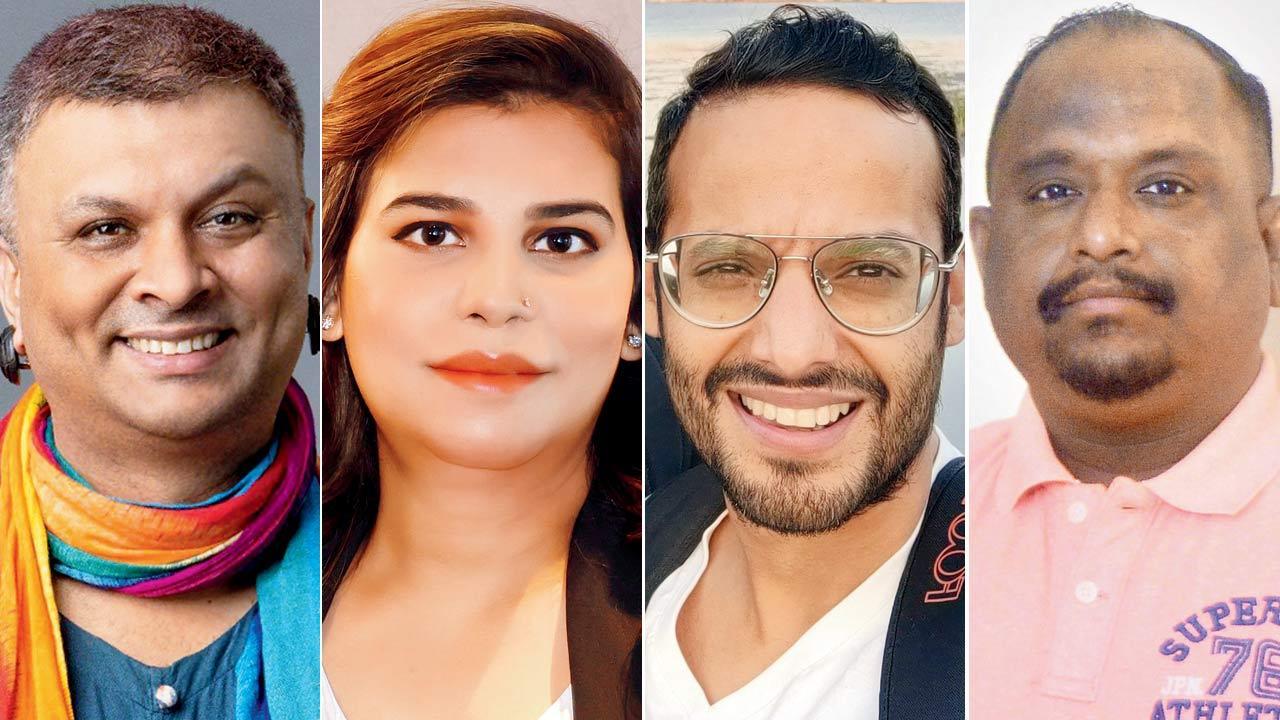
Mumbai activists Harish Iyer and Zainab J Patel; Delhi-based Uday Raj Anand, who is one half of a gay couple; and Thane-based queer historian and activist Mario da Penha are among the petitioners whose PILs will be heard next month. Pic/Satej Shinde
Until we had kids, we were somehow managing,” Delhi-based businessman Uday Raj Anand says about him and his partner Parth Phiroze Mehrotra, a publishing professional. “It was inconvenient, of course, to not have legal recognition,” he admits, but the support of friends, family and colleagues saw them through. It was only in 2020, when they had their two children, that “the indignity of not being seen as a family unit, became much more apparent. It seemed extremely unjust to our children, who clearly have two parents, but on paper only have one,” he shares over a telephonic interview. “The seriousness of this issue made us want to fight for that right [to be married] after all this time,” says Anand.
ADVERTISEMENT
In November 2022, gay couple Anand and Mehrotra moved a PIL before the Supreme Court seeking legal recognition for same sex marriages. Backing their case are several senior lawyers, including Supreme Court advocate Saurabh Kirpal, who is openly gay.
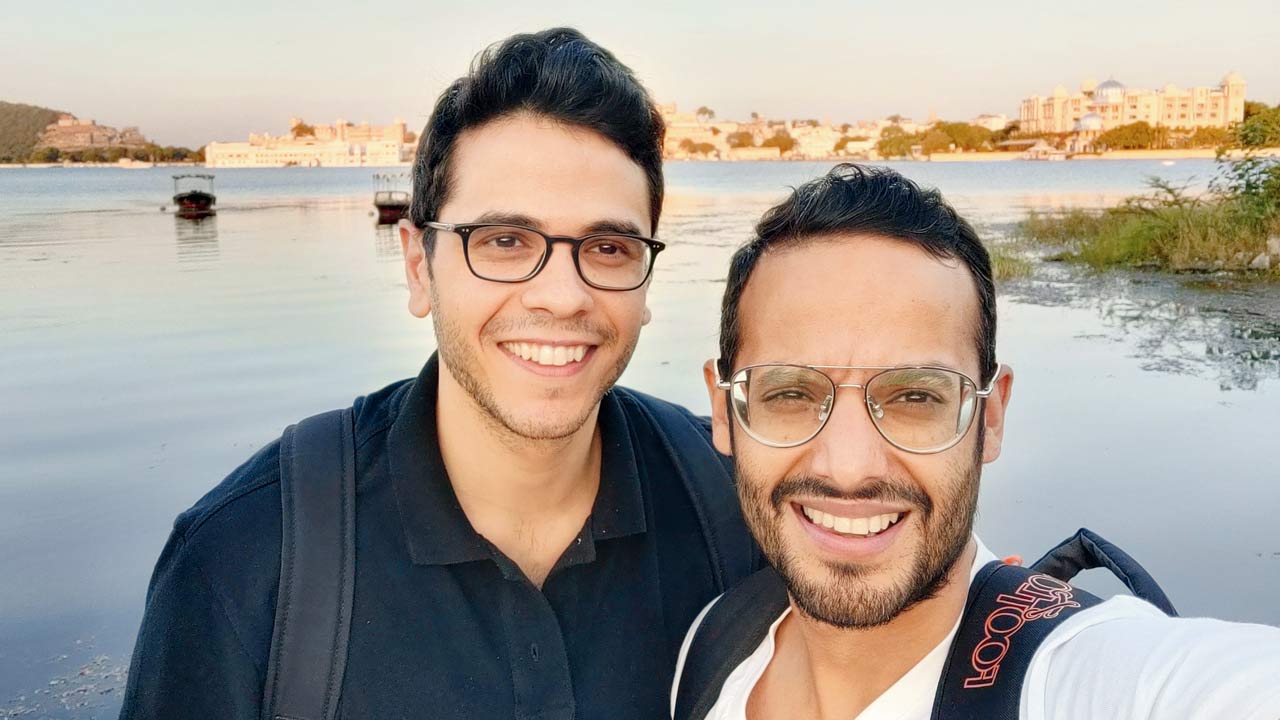 Delhi-based Uday Raj Anand (right) and his partner Parth Phiroze Mehrotra have been together for nearly 18 years. It was only after they had their children in 2020 that “the indignity of not being seen as a family unit, became much more apparent” to them
Delhi-based Uday Raj Anand (right) and his partner Parth Phiroze Mehrotra have been together for nearly 18 years. It was only after they had their children in 2020 that “the indignity of not being seen as a family unit, became much more apparent” to them
Theirs is among a batch of 15-odd petitions that the Supreme Court referred to a five-judge Constitution Bench last week, hitting headlines. The submissions, which essentially pray that the Special Marriage Act be made gender-neutral, will be heard on April 18. “These petitions speak to a diversity of experiences within the queer community. No two petitions are alike,” says Thane resident Mario da Penha, queer historian and activist, and head of diversity and inclusion, All India Professionals Congress.
Earlier last week, Solicitor General of India Tushar Mehta, appearing for the Centre, had opposed all the petitions, arguing that the legislative policy in India recognises marriage “as a bond only between a biological man and a biological woman” and the validation of these marriage unions would cause “complete havoc”.
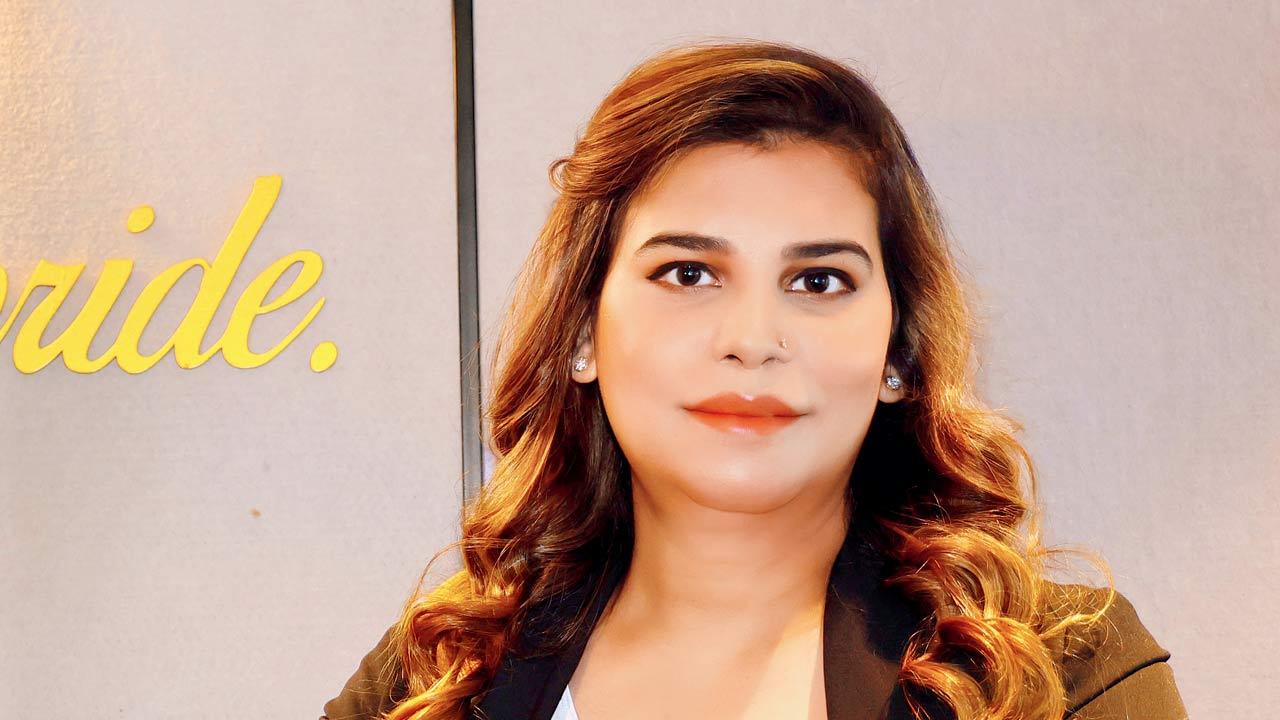 Zainab J Patel, in her petition, has sought a declaration that transgender persons enjoy the right to marry a person of their choice
Zainab J Patel, in her petition, has sought a declaration that transgender persons enjoy the right to marry a person of their choice
Amidst the noise, Anand says that he and his partner feel “fortunate for being able to lend our story to a fight that many have been part of before us”. Up until now, the challenges they have faced have varied from complex to the mundane. “Finances and taxes, for instance,” he says. “We live together, share a life, have expenses together, but it’s not easy to move money between our bank accounts. Some banks now claim that they are recognising same-sex couples, but clarity is lacking; it’s not easy. Besides, such a right doesn’t even have wide legal recognition. It’s still difficult to have nominees in insurance policies... and as things stand, we won’t be able to make important end-of-life decisions for each other or have an automatic claim to our shared inheritance.” While they know that their families would never get in the way of their rights, it’s not fair, says Anand, to “have your existence predicated on someone else’s understanding and largesse”.
The couple has been together for 18 years and wanted to start a family early on, but awareness about their struggles prevented them from taking the plunge. “We didn’t want to make it complicated for our children,” says Anand, “because they were bound to face very specific challenges... many of which are institutional.”
They eventually gave in to their parental instincts, but their happily-ever-after still awaits…
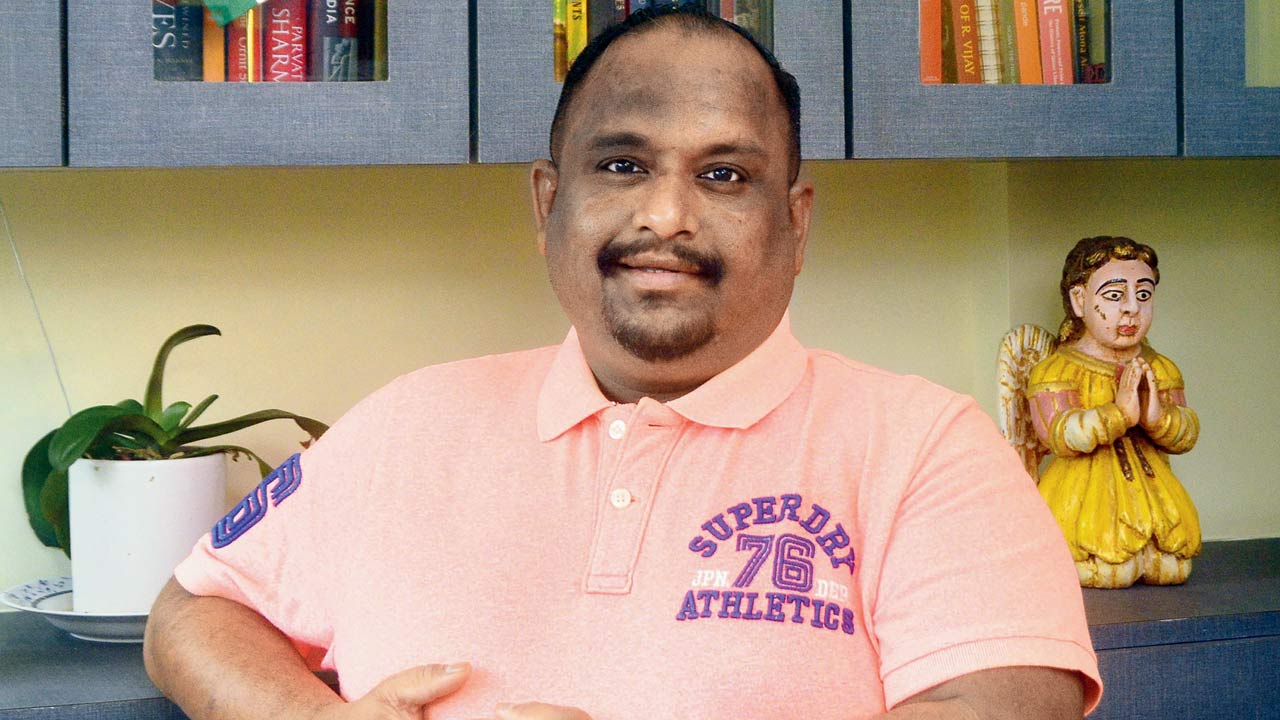 Thane resident Mario da Penha, queer historian and activist, is single but filed the PIL because his queer friends do not have the same access to rights as straight heterosexual couples. Pic/Satej Shinde
Thane resident Mario da Penha, queer historian and activist, is single but filed the PIL because his queer friends do not have the same access to rights as straight heterosexual couples. Pic/Satej Shinde
Zainab J Patel is the Chief Inclusion Officer at Pernod Ricard India, the country arm of a multinational alcohol beverage firm. She has previously worked with the United Nations, and has also been actively involved in raising issues related to the LGBTQiA+ community and their inclusion in the private and public policy space.
Patel, who identifies as transwoman, also filed a petition, and this one she says, came from a personal space as well as her activism—she was also a petitioner in the National Legal Services Authority (NALSA) versus Union of India case that led to SC’s landmark judgement in 2014, which legally recognised third gender/transgender persons for the first time and their fundamental rights under the Constitution.
In January 2016, when India was still battling criminalisation of homosexuality and queer relationships, Zainab and her then partner used the constitutional protection in the South African law to formalise their civil union. “At the time, I hadn’t fully transitioned, and my passport still identified me as male,” she says. “But the organisation I worked with recognised same sex partnerships and covered us under insurance benefits.”
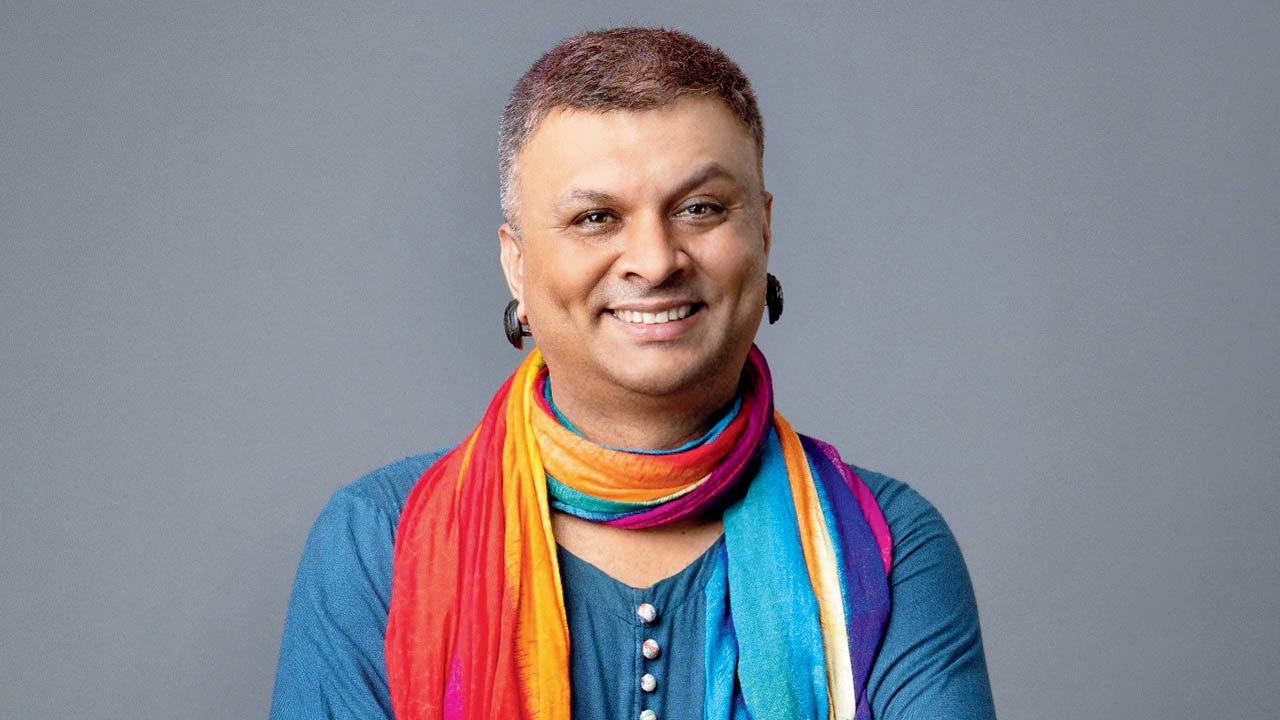 Harish Iyer
Harish Iyer
Patel transitioned medically after marriage, changing her given name, and taking on her husband’s name. Her petition, first filed in Delhi High Court in November 2021, sought recognition of their union under the Foreign Marriage Act of 1969, and also included a declaration that transgender persons be allowed to marry a person of their choice. While the couple parted ways last year—and the affidavit mentions that as well—their stand on the issue continues to be the same. “We have a responsibility towards our community, and couples like us,” she says.
Da Penha describes his place in this batch of petitions as unique. He first filed his PIL in the Delhi High Court in the monsoon of 2021. “There are quite a few couples who have filed petitions in the case,” he says. “But, I am not one half of a queer couple. Basically, I am not demanding recognition for a relationship that I am in, since I am single.” He has propelled queer activism for 20 years—he is the force behind Delhi’s first queer students’ organisation Anjuman, which eventually joined the fight to decriminalise Section 377. He cites the very specific plea moved by Joydeep Sengupta, an Overseas Citizen of India (OCI) card holder and his partner Russell Blaine Stephens. The duo prayed for a declaration from the court that “a spouse of foreign origin of an Indian citizen or OCI cardholder should be entitled to apply for registration as an OCI under the Citizenship Act regardless of the gender, sex, or sexual orientation of the applicant spouse”. “I was painfully aware that like Joydeep and Blaine, my queer friends who were couples, did not have the same access to rights that any straight heterosexual couple had… and the only basis of this discrimination was their sexuality,” da Penha says.
His friend and lawyer, senior SC advocate Karuna Nundy, motivated him to take action. “The government has come out and said that it’s not discriminating on the basis of sexuality, but that it will not go as far as allowing marriage rights [to queer persons].The thing is that once you have made an argument in favour of non-discrimination, you cannot draw another line in the sand, and say ‘go no further’.”
Mumbai-based equal rights activist Harish Iyer doesn’t invest too much importance in the idea of marriage. “I like the paraphernalia around weddings, like the ‘viral’ fancy romantic proposals,” he smiles. His partner too, he says, isn’t convinced. “But while people may have reservations around the institution of marriage itself, the reality of our times is that there are certain rights afforded only to married people… and because these rights allow for other rights as well, it [right to marriage] is important. Unfortunately, LGBTQiA+ persons in India don’t even have the ‘choice’ to decide whether they want to be married or not,” adds Iyer, who filed a petition in the Supreme Court on March 13. “Each voice that comes out in support will create a ripple effect.”
While Iyer’s organisation allows him to list his partner as nominee on policies and life insurance despite not being married to him, he says that most other companies are “pussyfooting” around the issue and waiting for law to take its course. “Many companies didn’t even have gender sensitisation programmes until September 6, 2018 when the Supreme Court decrimnalised Section 377.” A court order, Iyer thinks, will set new precedents.
Anand feels that he and his partner have “already achieved a lot through the filing of this petition”. “In the mid-2000s, when debates around Section 377 were ongoing, I remember the news would be relegated to a tiny space in the newspaper. As a young, closeted gay man, I felt marginalised because while it was such an important thing for me, it occupied so little of the public discourse. Today, the situation is so different. It’s already a win for us. [As far as the judgment goes] The Supreme Court has historically been an upholder of civil rights and liberties of all kinds of minorities… if that trajectory is anything to go by, then yes, I am hopeful.”
Where the case stands
On March 13, A bench comprising CJI DY Chandrachud, Justice PS Narasimha and Justice JB Pardiwala held a brief overview hearing of the petitions. Senior Advocate Neeraj Kishan Kaul, appearing for the petitioners, pointed out that the Special Marriage Act uses gender neutral terms as its Section 5 says “a marriage between any two persons may be solemnised under this Act”. SG Tushar Mehta argued that the Union had shown specific sections which applied only to biological men and women.
 Subscribe today by clicking the link and stay updated with the latest news!" Click here!
Subscribe today by clicking the link and stay updated with the latest news!" Click here!








